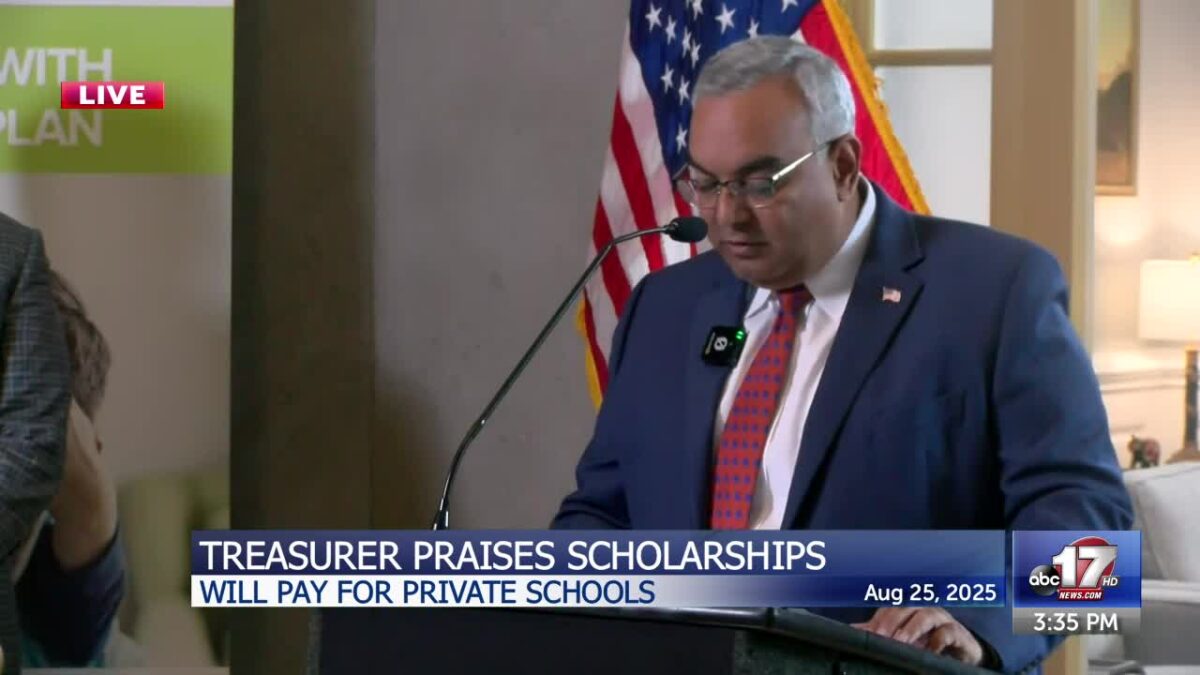Cole County Judge denies temporary restraining order in school choice case

Marie Moyer
JEFFERSON CITY, Mo. (KMIZ)
Cole County Judge Brian Stumpe on Monday denied the temporary restraining order the Missouri National Education Association sought against House Bill 12, which would give over $51 million to the Missouri Empowerment Scholarship Accounts Program for families to use on private school tuition.
The MOScholars program will give families of children with special needs or in low-income areas scholarships to access alternative schooling opportunities and educational resources.
“MOScholars is about giving parents the freedom to choose the educational path that best fits their child’s needs,” Malek said.” That freedom should never be taken away — not by bureaucrats, and certainly not by union bosses.”
Last year, through a senate bill, the general assembly increased eligibility for the program by expanding both eligible income levels and changing the definition of “qualified student” from students in specific counties to students from the entire state.
“Today’s ruling is a victory for parents and kids across Missouri,” Attorney General Bailey said in a statement Monday. “Missouri continues to fund public education at record levels. But for children who need something different, whether due to special needs, safety concerns, or failing districts, scholarships like these are lifelines.”
“We think it’s good to have options for all children, including the public schools and the scholarship program and so the value of the scholarship is just like we’ve seen in higher ed, where scholarships have helped kids get the right placement,” said attorney Brian Cleveland, who is representing families opposed to the lawsuit.
The lawsuit against the state was issued by the MNEA in June after state budget talks. In court documents, the MNEA claims the multi-million dollars of additional funding is unconstitutional.
In the Motion for Temporary Restraining Order, it said, “No Missouri statute beyond HB 12 itself authorizes the expenditure of general revenues for private school scholarships.”
Several defendants in the suit argue that vouchers are eligible for public schools, MNEA President Rebeka McIntosh disagrees.
“That’s not how vouchers work,” McIntosh said. “Our goal is that 900,000 public school students in Missouri deserve the very best they can get, and by draining all $51 million of general taxpayer funds to unaccountable, untrained private schools is not what is best for public school students in Missouri.”
Opponents also argue the scholarships could divert students from public schools, cutting their funding because the state distributes money per pupil. McIntosh adds that rural communities are especially vulnerable, as many small towns rely on public schools for both education and jobs.
“The public school is the heart of the community, it’s the heart of those small towns, we know that across our state and Missouri and when the schools don’t have what they need, then the entire community suffers,” McIntosh said.
“When this has been done in other states, the only people taking advantage of those voucher programs are people that are already in private schools, so it’s not expanding necessarily opportunities for students who can’t get in,” State Rep. Kathy Steinhoff (D-Columbia) said. “Not leveling the playing field of white people. I think it’s going to.”
A case review for the lawsuit is scheduled for Sept. 22 at 9 a.m. in the Cole County Courthouse.
Both the plaintiffs and defendants in the case are confident as the lawsuit continues.
“We’re just prepared to move on with arguing the case, and we will do that beginning in September and feel very confident that we can win on the merits of the case,” McIntosh said.
“It’s up to the plaintiffs as to what action they want to take next, and we’ll be there whenever they or the court wants us to make sure that we tell the families’ stories defending the program,” Cleveland said.